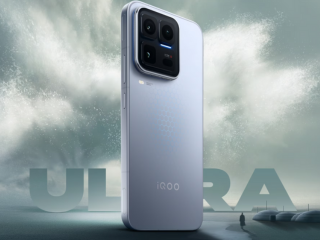- Home
- Mobiles
- Mobiles Reviews
- Samsung Galaxy S20 FE Review
Samsung Galaxy S20 FE Review
The price is lower, but do you still get a flagship-level experience?

The Samsung Galaxy S20 FE is officially priced starting at Rs. 49,999 before offers
Samsung spins the new Galaxy S20 FE, or “Fan Edition”, as a model that offers all the features that fans care most about in a more affordable package. As the prices of flagship phones have skyrocketed to well over Rs. 1,00,000 over the past few years, the “flagship killer” segment at around Rs. 40,000 to 50,000 has become more and more important. Rather than let competitors such as OnePlus and Xiaomi eat its lunch, the Korean giant has decided to fight back with a watered-down version of the Galaxy S20.
Samsung has dabbled with several ways to sell more affordable versions of its flagship phones without cannibalising sales. Last year, we had the physically smaller Galaxy S10e (Review) which proved to be a hit in the same vein as the “mini” versions of some older models. The company also later introduced the Galaxy S10 Lite (Review) which was a somewhat confusing but still decent mid-range option. We've also seen premium A-series models attempting to serve the same market.
Now that the OnePlus 8T (Review) has been launched and several flagships are dropping in price, can the new Galaxy S20 FE attract an audience of its own? Read on to find out.
Samsung Galaxy S20 FE price and competition
Only one configuration of the Galaxy S20 FE in India, with 8GB of RAM and 128GB of storage, was announced at launch time, priced at Rs. 49,999. However, when this model went on sale, a 256GB variant priced at Rs. 53,999 also appeared. Oddly, it's sold only in a single colour, Cloud Navy, rather than the full range.
A 5G version is sold in other countries, but the Galaxy S20 FE is only available with 4G network compatibility in India. The obvious target is the OnePlus 8T, which is priced starting at Rs. 42,999. Other likely competitors are the new Xiaomi Mi 10T Pro 5G, gaming phones such as the Asus ROG Phone 3 (Review), and even the iPhone 11 (Review).
However, what makes the Galaxy S20 FE stand out for all the wrong reasons is the fact that the much more premium Galaxy S20 and Galaxy S20+ (Review) now sell for much less than their official launch prices. In fact, Samsung is currently discounting the fantastic Galaxy S20+ to exactly Rs. 49,999 on its own website, and it has been available for that much during ongoing online festive sales.
This is hard to understand, since it undercuts the brand new Galaxy S20 FE and even the Galaxy S20. In an effort to reconcile its range, Samsung has just recently announced price cuts down to Rs. 44,999 and Rs. 48,999 (plus bank offers) for the 128GB and 256GB variants. This will undoubtedly annoy early adopters, coming less than two weeks after the Galaxy S20 FE first went on sale. As far as offering consumers value for money, this is hardly the most conducive environment in which to promote a model with more modest specifications.
![]()
The Galaxy S20 FE has a 4500mAh battery and Samsung Exynos 990 SoC
Samsung Galaxy S20 FE design
The Galaxy S20 FE does fit in with its siblings. It has the same basic proportions but interestingly is larger than the Galaxy S20 thanks to its 6.5-inch screen. You don't get curved edges on the screen, which in my opinion is actually a good thing. The frame is shiny and metallic, while the rear panel is made of a matte polycarbonate. The 128GB version of this phone is available in five colours, ranging from the bold Cloud Red and Cloud Navy to the much softer pastel Cloud Mint and Cloud Lavender, plus a neutral Cloud White.
The rounded sides of the rear panel make the Galaxy S20 FE very easy to hold, and the non-slip texture is much appreciated. You also don't have to worry at all about fingerprints, but mild smudges can be seen after use. You don't get any kind of case in the box with this phone.
Contributing to the premium feel, the screen borders are quite slim. The earpiece is so narrow it can barely even be seen. The front camera is embedded right in the centre of the top – it's fairly small but is still a little distracting not only because of its position but also because there's a highly reflective silver ring around it. Samsung will ship this phone with a screen protector pre-applied, and the one on my review unit was slightly misaligned.
The power and volume buttons are on the left, and are within easy reach. Samsung has dropped its dedicated Bixby button and I don't miss it at all. There's a USB Type-C port on the bottom and no 3.5mm audio socket. The tray on the top can accommodate either two Nano-SIMs or one Nano-SIM and a microSD card.
Measuring 8.4mm thick and weighing 190g, the Galaxy S20 FE is fairly easy to handle and live with. It's rated IP68 for water and dust resistance, so it should be able to withstand exposure to the elements. Despite being not exactly flagship-level, construction quality is excellent and there's no doubt that this feels like a premium phone.
![]()
The ring around the front camera is distracting, but the earpiece is hidden neatly
Samsung Galaxy S20 FE specifications and software
The Galaxy S20 FE gets the same top-tier Exynos 990 processor as its siblings in the S20 family. This is an octa-core SoC with two custom Samsung performance cores running at 2.73GHz, two more ARM Cortex-A76 cores running at 2.5GHz, and four more power-efficient 2GHz Cortex-A55 cores.
There's 8GB of RAM and 128GB or 256GB of storage, plus support for up to a 1TB microSD card using the hybrid slot. The battery capacity is 4500mAh and wireless charging is supported in both directions. You only get a 15W adapter in the box, though this phone can take advantage of up to 25W chargers.
Samsung has gone with a 6.5-inch 1080x2400-pixel Super AMOLED screen. There's no official mention of HDR but it does seem to be supported. There is also an always-on mode that's disabled by default. One pleasant surprise is a 120Hz refresh rate, though there doesn't seem to be any way to enable this dynamically – it's either 60Hz or 120Hz all the time. A workaround is to enable Adaptive Power Saving, which will toggle the refresh rate along with several other settings based on your usage patterns.
Speaking of power saving, Samsung lets you choose between four performance levels. The Medium and Maximum modes limit CPU performance to 70 percent and reduce the maximum screen brightness by 10 percent. The Maximum mode also locks you down to only a few apps and forces dark mode. Background data is restricted and the always-on display and all biometrics are also disabled.
These are just a few of the vast number of features you'll find throughout Samsung's One UI 2.5, which runs on top of Android 10. My unit received an update to the October Android security patch during the review period, which was good to see. The Bixby button might be gone but the assistant can still be called up using the power button. You can use your SIM for calls and text messages through other linked Samsung devices, and Samsung's recent partnership with Microsoft for Windows 10 integration is also supported on the Galaxy S20 FE.
There are various shortcut gestures, a Game Launcher with optimisations, UI themes, a Dual Messenger feature for using two accounts with certain apps, a screen recorder, expandable notification bubbles, and plenty of options for home screen customisation. Edge Panels give you quick access to various shortcuts and mini apps with a swipe in from either edge of the screen, and you can download many more free and paid panels from the Galaxy Store.
On the downside, there are quite a few Samsung apps preloaded, including a pointless Web browser and tie-in apps for the company's AR, wearables, and IoT products. Samsung Health and Samsung Pay are potentially useful, but on the other hand, the My Galaxy app spawned annoying notifications multiple times per day.
![]()
There's a USB Type-C port on the bottom, but no 3.5mm socket
Samsung Galaxy S20 FE performance
As expected, there's no lag whatsoever when swiping through the One UI interface and when multitasking between apps. The Galaxy S20 FE felt snappy, thanks to the high refresh rate panel as well as the capable SoC and large amount of RAM. The in-display fingerprint sensor and face recognition aren't as quick as I would have liked, but this shouldn't be much of a problem. This is the kind of phone that you'd be more than happy to use for everyday apps and tasks.
The screen is crisp and vibrant. Other than the distracting camera hole, videos and games look great. The experience is helped by this phone's stereo speakers, which feel quite well balanced. Sound is a bit thin and lacking in bass, but that's to be expected.
Coming to benchmark tests, AnTuTu reported a score of 4,62,330, and Geekbench's single- and multi-core results were 517 and 2,573 respectively. 3DMark's Slingshot Extreme graphics test managed 6,649, while GFXBench's Manhattan 3.1 and Car Chase scenes ran at 55fps and 33fps respectively. These scores are a bit lower than what the Galaxy S20+ (Review) and Galaxy S20 Ultra (Review) achieved.
Modern games including Call of Duty Mobile and Asphalt 9: Legends were perfectly smooth at their default graphics quality settings. However, the upper rear of the Galaxy S20 FE did get quite warm after just five minutes or so of play. This became slightly uncomfortable over longer gaming sessions.
Battery life wasn't particularly impressive. I was able to get a full day's use out of a charge, but I wouldn't expect more than that. Our HD video loop test ran for 12 hours, 44 minutes, which is below average. Using the bundled charger, I was able to get up to 17 percent in 15 minutes and 61 percent in an hour.
![]()
All three of the cameras on the Galaxy S20 FE are useful and practical
Samsung Galaxy S20 FE cameras
Considering how heavily Samsung emphasised camera quality as the defining feature of the Galaxy S20 family, it will be interesting to see how this lower-priced model fits in. The Galaxy S20 FE has a scaled-down set of cameras, starting with a 12-megapixel f/1.8 primary camera with OIS. There's also a 12-megapixel f/2.2 ultra-wide camera and an 8-megapixel f/2.4 3X optical telephoto camera. For selfies, you get a 32-megapixel f/2.2 camera.
Unsurprisingly, the camera app is jammed with features and options. Modes include Samsung's Single Take composition tool, pro mode, food mode, night mode, live focus for stills and video, slow motion and super slow motion, and hyperlapse. You can download additional filters or create your own based on the colour profile of any photo, if the default selection ever gets boring. The Scene Optimiser feature is on by default and will display a shortcut to enable Night Mode quickly if it thinks it's necessary.
The Galaxy S20 FE locked focus quickly and metered scenes quite well during the day. Colours were vibrant, verging on oversaturated in some instances. Shots came out looking sharp and subjects were well defined. Detail on objects at a distance was also quite good. Close-up shots were excellent, with minute details reproduced very well and a very pleasant natural depth of field.
Samsung Galaxy S20 FE daytime photo samples. Top to bottom: Ultra-wide, standard, 3X zoom (tap to see full size)
In fact, close-ups taken in the default Photo mode were often better than when using the Live Focus mode, which requires you to stand back quite a distance from your subject. If you do use this mode though, you can refocus shots, adjust the blur intensity and type, and remove all colour except for the object in focus.
The wide-angle camera does introduce significant distortion and quality is not bad if you're just checking your shots on the phone's screen. Colours aren't drastically different because of the re-framing. The 3X optical telephoto camera also captures excellent detail, and shots hold up even when seen fully magnified on a large monitor. The three cameras that Samsung has chosen are all genuinely useful without being gimmicky, and could all come in handy regularly.
Samsung Galaxy S20 FE daytime photo samples (tap to see full size)
Things get a little less satisfactory at night – focus was sometimes inaccurate but tapping the screen manually will result in a quick lock. The good news is that you can capture decent shots even if it's too dark to see your subject in the viewfinder, if you know where to tap. The Scene Optimiser will force a slow shutter by default, but this isn't the same as Night Mode, and results did differ slightly.
Low-light shots were a little grainy and colours were sometimes off depending on the kind of lighting around. The wide-angle and telephoto cameras do suffer thanks to their narrower apertures but shots are still usable. Using Night Mode did usually result in better colour reproduction and slightly improved detail.
Samsung Galaxy S20 FE Night Mode photo samples (tap to see full size)
The front camera takes 8-megapixel binned shots by default. A wide-angle mode essentially reverse-crops the frame, but the difference is very slight. Selfies came out looking crisp with good detail and exposure, but beautification is turned on by default and it takes several taps to disable it. Night mode works here as well, and can definitely help when there isn't enough light falling on your face.
As for video, the Galaxy S20 FE was able to capture smooth 1080p footage with all three cameras in the daytime. Whether standing still, panning, or walking, video looked good and there was no jerkiness. At 4K, motion was a little less smooth especially with the telephoto camera. Low-light video shot with the primary camera was good enough, but quality suffered with the telephoto and wide-angle cameras. There was noticeable judder at 4K when moving while recording, and stabilisation artefacts were also an issue at 1080p. You can switch between cameras while recording, and the transitions are slick.
Samsung Galaxy S20 FE selfie samples. Top: daytime, bottom: Night Mode (tap to see full size)
Slow-motion video came out looking great. In super-slow-mo mode, video is captured at 720p. The beginning and end of clips play back at normal speed, and you can adjust the points between which footage is dramatically slowed down. You can also reverse and loop it for creative effect.
Verdict
Samsung used the “Fan Edition” suffix when it tried selling refurbished Galaxy Note 7 units in South Korea with smaller, safer batteries. The move might have helped Samsung recoup some of the losses it suffered following the catastrophic and embarrassing global launch (and subsequent global bans) of the Galaxy Note 7, but this was never going to be a mass-market phone. “Fan edtion” basically acknowledged that only those people who are fervently dedicated to the Samsung brand would actually buy it.
That's why it's a little surprising to see a brand new model launch in multiple countries with the same branding – that too one aimed at a much more mainstream audience than its siblings. You don't have to be a fan of the brand to like this phone.
What Samsung has got right though is the balance of cost and features. You don't get the full flagship experience, but if people are happy with so-called flagship killers, you now have a pretty good choice within the Samsung lineup. What works for the Galaxy S20 FE is its fit and finish, high-quality screen, and useful cameras.
Pricing is an unavoidable issue, though. People who pre-ordered or bought the Galaxy S20 FE early are going to be justifiably upset because of the rapidly reduced price and 256GB storage option. The bigger issue is Samsung now selling the far superior Galaxy S20+ at exactly the same price that the Galaxy S20 FE launched at. No matter how good this new phone seems and how much it gets right, Samsung itself offers stronger competition as long as prices stay where they currently are.
Get your daily dose of tech news, reviews, and insights, in under 80 characters on Gadgets 360 Turbo. Connect with fellow tech lovers on our Forum. Follow us on X, Facebook, WhatsApp, Threads and Google News for instant updates. Catch all the action on our YouTube channel.
Related Stories
- Samsung Galaxy Unpacked 2025
- ChatGPT
- Redmi Note 14 Pro+
- iPhone 16
- Apple Vision Pro
- Oneplus 12
- OnePlus Nord CE 3 Lite 5G
- iPhone 13
- Xiaomi 14 Pro
- Oppo Find N3
- Tecno Spark Go (2023)
- Realme V30
- Best Phones Under 25000
- Samsung Galaxy S24 Series
- Cryptocurrency
- iQoo 12
- Samsung Galaxy S24 Ultra
- Giottus
- Samsung Galaxy Z Flip 5
- Apple 'Scary Fast'
- Housefull 5
- GoPro Hero 12 Black Review
- Invincible Season 2
- JioGlass
- HD Ready TV
- Laptop Under 50000
- Smartwatch Under 10000
- Latest Mobile Phones
- Compare Phones
- iQOO 15 Ultra
- OPPO A6v 5G
- OPPO A6i+ 5G
- Realme 16 5G
- Redmi Turbo 5
- Redmi Turbo 5 Max
- Moto G77
- Moto G67
- Asus Vivobook 16
- Asus Vivobook S16 (2026)
- Black Shark Gaming Tablet
- Lenovo Idea Tab Plus
- HMD Watch P1
- HMD Watch X1
- Haier H5E Series
- Acerpure Nitro Z Series 100-inch QLED TV
- Asus ROG Ally
- Nintendo Switch Lite
- Haier 1.6 Ton 5 Star Inverter Split AC (HSU19G-MZAID5BN-INV)
- Haier 1.6 Ton 5 Star Inverter Split AC (HSU19G-MZAIM5BN-INV)


















